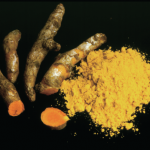 My patients ask me almost daily what kind of diet they should be on, or if there are certain supplements they should try. And a growing amount of evidence shows lifestyle and dietary factors may contribute to disease risk and outcomes in rheumatic disease. Thus, rheumatologists and rheumatology professionals are being called upon by patients for counsel on this topic, but many are not confident in their ability to do so.1,2
My patients ask me almost daily what kind of diet they should be on, or if there are certain supplements they should try. And a growing amount of evidence shows lifestyle and dietary factors may contribute to disease risk and outcomes in rheumatic disease. Thus, rheumatologists and rheumatology professionals are being called upon by patients for counsel on this topic, but many are not confident in their ability to do so.1,2
Although it would be impossible to outline everything about diet and supplements in rheumatology in a single article, the goal here is to discuss common questions you may encounter in your rheumatologic practice, and to provide some resources and practical insight into how to help your patients navigate some of these questions and keep them safe.
An Anti-Inflammatory Diet?
What is an anti-inflammatory diet, & how can I implement one?
The first thing to know: There is no such thing as a uniformly accepted definition for an anti-inflammatory diet. That said, you should be aware that certain foods have been shown to be pro-inflammatory, with refined carbohydrates, red meat, processed foods, sweetened beverages and saturated fats being the top offenders. Eating a lot of these increases the risk for cardiovascular disease and has been shown to increase serum tumor necrosis factor (TNF) α, C-reactive protein (CRP) and interleukin (IL) 6.3 On the other hand, eating more fruits, vegetables and foods rich in omega-3 fatty acids has the opposite effect.
The Mediterranean diet is generally considered anti-inflammatory, precisely because it focuses on high intake of the anti-inflammatory fruits, vegetables, whole grains, legumes, olive oil and fish, while minimizing the pro-inflammatory sugar, highly processed foods and meats.
The ACR discussed a draft guideline for integrative approaches in rheumatoid arthritis (RA) during ACR Convergence 2022.4 While the full guideline had not been published when this was written, it conditionally recommends the Mediterranean diet over other formally defined diet plans for RA. In RA, adherence to this diet has been shown to improve pain, morning stiffness and physical function.5 Although the ACR guideline is meant specifically for patients with RA, the Mediterranean diet has also been shown to be beneficial in improving disease activity scores in psoriatic arthritis, disease activity scores and body mass index (BMI) in systemic lupus erythematosus, and gastrointestinal symptoms in systemic sclerosis.6,7
 In general, you can’t go wrong in counseling patients to minimize sugary and processed foods. Patient-friendly materials about the Mediterranean diet can be found on the Arthritis Foundation website in both English and Spanish. Referring For patients who are struggling or seeking more guidance to a registered dietician will help individualize their approach.8
In general, you can’t go wrong in counseling patients to minimize sugary and processed foods. Patient-friendly materials about the Mediterranean diet can be found on the Arthritis Foundation website in both English and Spanish. Referring For patients who are struggling or seeking more guidance to a registered dietician will help individualize their approach.8
Supplements
How do I know which over-the-counter supplements are safe?
In April 2022, the U.S. Food & Drug Administration (FDA) released a report indicating the presence of diclofenac and dexamethasone in an over-the-counter supplement being promoted to help with joint pain.9 Although the label listed familiar supplement names, such as glucosamine, chondroitin, curcumin, omega-3 and vitamin C, it left off the prescription drugs. Artri King had been on the market in the U.S. for several months prior to this warning. How did this happen?
Although the FDA has an extensive process for regulating pharmaceuticals, it regulates dietary supplements as if they are food. What’s more, manufacturers are not required to disclose when they release a new product on the market. When you see the list of medication fraud warnings on the FDA website, you realize that this is not an uncommon problem. This is where third-party verification comes into the picture.
Third-party verification services are provided by independent companies that perform audits of supplement manufacturers to ensure good manufacturing processes, verify products listed on the label are present at declared potency, and assess for the presence of contaminants or other banned substances. The most well-known of these companies include USP (formerly U.S. Pharmacopeia) and the National Sanitation Foundation (NSF), which receive products directly from the manufacturer for testing for a fee and will retest each product at least once a year. If a supplement has passed inspection, it should have either the USP, NSF or another third-party logo on the bottle.
To be clear, third-party verification does not indicate the effectiveness of the supplement for what it is being advertised for, just that the label adequately describes the contents of the bottle.
U.S. consumers spent $11.2 billion on herbal supplements in 2020.10 The pandemic was certainly a driver for much of the surge during this year, with elderberry—touted as a support for immune health—being the top seller, accounting for $275 million of this total.10
The fact of the matter is, even if we’re not actively recommending them to our patients, over half of Americans report taking at least one over-the-counter supplement. With the incomplete safety net provided by the FDA, providers and consumers alike need to be aware of potential pitfalls in the system. Encouraging patients to read the label and confirm they are taking what is advertised is a huge first step in patient safety.
What supplements can I take for my arthritis?
A handful of popular supplements are used for arthritis, with varying levels of quality of evidence and effect size. Although the aforementioned ACR guideline conditionally recommends against any supplements, it doesn’t forestall a conversation with patients and will likely leave them (and possibly your curiosity) unsatisfied.
Below I discuss a few supplements you will most likely be asked about, what we know, what we don’t and what you should warn your patients about.
Turmeric
Turmeric is the rhizome of the plant Curcuma longa, which has been used in traditional Chinese medicine for years. Although the terms turmeric and curcumin are often used interchangeably, they are not the same: Only about 1–6% of turmeric is the active ingredient, curcumin or curcuminoids.11
A recently published review evaluated 31 randomized controlled trials (RCTs) on curcumin in various autoimmune conditions and found it may be beneficial in improving disease activity and/or serum inflammatory markers in psoriatic arthritis, ankylosing spondylitis, Behçet’s disease, ulcerative colitis and RA.12 However, only two of these 31 RCTs used turmeric instead of the more potent curcumin or nanocurcumin, which is better absorbed, and doses varied among studies.
Commercially available turmeric and curcumin supplements come in varying doses and formulations. Although the bioavailability of turmeric by itself is actually quite poor, it is improved about 20-fold when combined with black pepper or piperine.11 Unfortunately, many companies have taken advantage of this fact and, in the past decade, case reports of turmeric-induced liver injury have increased. Liver injury has, in part, been attributed to the addition of piperine to these supplements.13
That said, a handful of case reports does not equate to a definite risk for everyone. It is also unclear how much of the hepatotoxicity was from the turmeric, curcumin, synthetic curcuminoids (another popular additive), other contaminants or a combination of all of these and the piperine. In fact, none of the RCTs included in the systematic review noted significant adverse hepatotoxic effects.12 Nevertheless, for patients who already have elevated liver enzymes or are on other medications that may have hepatotoxic risks, providers should be aware of this potential side effect for turmeric and piperine combinations and counsel appropriately.
Additionally, turmeric has been shown to inhibit platelet aggregation, so although the clinical significance of this is unclear, patients taking other anticoagulation agents should be warned of potential interaction or increased bleeding risk.14
Glucosamine & chondroitin
Glucosamine and chondroitin supplements are often sold in combination, more commonly for knee and hip osteoarthritis (OA), although data regarding their effectiveness have varied. Because these are prescription drugs in Europe, they have recommended therapeutic doses of 1,500 mg daily for glucosamine sulfate and 800 mg daily of chondroitin sulfate. You can find these supplements in different doses.
Additionally, several types of glucosamine are sold commercially in the U.S.: glucosamine hydrochloride (GH), glucosamine sulfate (GS) and crystalline glucosamine sulfate (cGS). They have varying bioavailability—with cGS the most and GH the least—and thus should not be considered equal.15
A recently published meta-analysis evaluating glucosamine sulfate and chondroitin sulfate in moderate knee and hip OA noted improvement in pain and function with chondroitin use and improvement in stiffness with glucosamine use, but no statistical benefit when used in combination in any of these outcomes.16 This meta-analysis was interesting in that it excluded trials with subtherapeutic doses of either supplement and included only those with the same formulations. Other systematic reviews have not come to the same conclusion, and use of these supplements overall remains controversial.
Although most research on chondroitin and glucosamine have been in hip and knee OA, the 2018 EULAR recommendations for hand OA included one to consider 800 mg of chondroitin daily for hand OA, based on one well-done trial. The EULAR recommendation included a caveat that more studies are needed.17
Overall, this debate is an old one and could be its own piece. For any of your patients who choose to try these supplements, discussing that data are inconclusive but attempting a trial with appropriate dose and formulation would not be unreasonable. However, patients should be aware that glucosamine and chondroitin can interact with medications, including warfarin, so a careful medication review would be needed.18
Cinnamon
Cinnamon gained popularity over the past several years due to its purported benefits in improving insulin sensitivity, fasting blood glucose, dyslipidemia and inflammation in diabetes.19 With its claimed anti-inflammatory effects in diabetes and adiposity, it is not surprising that cinnamon was eventually tried in inflammatory arthritis.
In a randomized double-blind control trial, 36 women with RA were given either placebo or 1 g of cinnamon (Cinnamomum burmannii) twice daily for eight weeks. Those who took the cinnamon were found to have significantly decreased tender and swollen joint counts and erythrocyte sedimentation rates (ESR) by the end of the trial.20
A more recent in vivo study evaluated trans-cinnamaldehyde, a bioactive ingredient in cinnamon, in inflammatory arthritis mouse models and found this down-regulated TNFα, NFκB and COX-2 pathways and decreased IL-1β, IL-6, IL-23 and IL-17 in inflamed paw tissue, almost to the same extent as methotrexate.21
Importantly, anyone interested in supplementing their diet with cinnamon should be aware that there are four different species of cinnamon, with Cinnamomum cassia being the most common in the U.S., but also the one with the highest potency of coumarin, a potentially hepatotoxic chemical.22 Potency of coumarin is less than 0.01 g/kg in Ceylon cinnamon (C. zeylanicum), compared with 3.6 g/kg in C. cassia. Although up to 6 g/day of cinnamon has been considered generally safe, long-term administration in large amounts of >3 g/day should be carefully monitored.22
If a patient brings in a new supplement you’re unaware of, a useful resource is the National Institutes of Health (NIH) Office of Dietary Supplements website, which lists
numerous supplements along with references to primary literature.23 Although not comprehensive, the resource is quick and easily accessible when you’re in a busy clinic.
Can supplements potentially worsen my disease?
Yes. Another reason to be informed about this topic is that not everything sold over the counter is entirely benign for patients with rheumatic disease.
The most well-known offender is red yeast rice, which contains lovastatin, and thus should be avoided in patients with anti-HMGCR necrotizing myositis. Natural statins have also been found in oyster mushrooms, some soy products and wheat germ.24 Other natural HMG-CoA reductase inhibitors gaining popularity in the supplement world are mushrooms, with shiitakes being the most potent.25
The previously mentioned market report on supplement sales in the U.S. included a table of top-selling herbal supplements from natural foods stores.10 Coming in at No. 5 was mushroom supplements, with increased sales of 41% in 2020, compared with 2019. Several case reports note either new-onset necrotizing myositis patients or recurrent flares after high consumption mushrooms.24,26,27 Mushroom supplements are still one of newer kids on the block, but with their rise in popularity in some circles, we will need to keep a healthy eye on them.
A recently published review on environmental triggers in dermatomyositis (DM) included a section on herbal supplements and noted Spirulina platensis, Aphanizomenon flosaquae, Chlorella, Echinacea and alfalfa all stimulate the immune system and have been associated with autoimmune skin disease.28 Several case reports note patients who have developed DM or a flare of their disease after taking these supplements.28
In vitro, spirulina has been shown to stimulate interferon (IFN) β, TNFα and IFNγ signatures in classical monocytes and monocyte-derived dendritic cells of patients with dermatomyositis, compared with healthy controls.29 Given its potential to improve lipid profiles in some people, spirulina is found in many combination supplements and commercially sold smoothies for this purpose but should be avoided in dermatomyositis patients.30
Conclusion
When you consider how little we know about the pathogenesis of rheumatic disease and how often patients feel a lack of understanding or control in their health, it is not surprising the idea of taking supplements or modifying diet plans would be appealing. It is an opportunity for patients who otherwise are at the mercy of their medical provider—or, often, their insurance company—for treatment, to take some control of their health in their day-to-day lives. Moreover, many of the treatments we offer in rheumatology are not benign and have their own laundry lists of risks. These risks can certainly propagate fear, an emotion many of these alternative treatments can exploit. In medicine, we understand that natural does not equate to safe, but this concept is not easily understood by many outside the field.
In no way would I ever advocate for diet/supplements instead of traditional therapy when indicated; supplements, by definition are supplemental. Nevertheless, having a basic understanding of the potential risks and benefits of what is available and appropriate lifestyle counseling are crucial for the overall health and well-being of our patients.
We would all benefit from more structure and curiosity when discussing and studying such a nuanced topic.
 Emily Molina, MD, is a rheumatology fellow at Johns Hopkins University Hospital, Baltimore.
Emily Molina, MD, is a rheumatology fellow at Johns Hopkins University Hospital, Baltimore.
References
- Crowley J, Ball L, Hiddink GJ. Nutrition in medical education: A systematic review. Lancet Planet Health. 2019 Sep;3(9):e379–e389.
- Gwinnutt JM, Wieczorek M, Rodríguez-Carrio J, et al. Effects of diet on the outcomes of rheumatic and musculoskeletal diseases (RMDs): Systematic review and meta-analyses informing the 2021 EULAR recommendations for lifestyle improvements in people with RMDs. RMD Open. 2022 Jun;8(2):e002167.
- Galland L. Diet and inflammation. Nutr Clin Pract. 2010 Dec;25(6):634–640.
- 2022 American College of Rheumatology guideline for exercise, rehabilitation, diet, and additional integrative interventions for rheumatoid arthritis: Guideline summary. American College of Rheumatology. 13 Jan 2023. https://www.rheumatology.org/Portals/0/Files/Integrative-RA-Treatment-Guideline-Summary.pdf.
- Forsyth C, Kouvari M, D’Cunha NM, et al. The effects of the Mediterranean diet on rheumatoid arthritis prevention and treatment: A systematic review of human prospective studies. Rheumatol Int. 2018 May;38:737–747.
- Caso F, Navarini L, Carubbi F, et al. Mediterranean diet and psoriatic arthritis activity: a multicenter cross-sectional study. Rheumatol Int. 2020 Jun;40:951–958.
- Pagliai G, Colombini B, Bellando Randone S, et al. Nutrients, foods and dietary patterns in the management of autoimmune rheumatic diseases. Clin Nutr Open Sci. 2022 Aug;44:49–65.
- Paturel A. The ultimate arthritis diet. Arthritis Foundation. (n.d.) https://www.arthritis.org/health-wellness/healthy-living/nutrition/anti-inflammatory/the-ultimate-arthritis-diet.
- Public notification: Artri King contains hidden drug ingredients. U.S. Food & Drug Administration. 20 Apr 2022. https://www.fda.gov/drugs/medication-health-fraud/public-notification-artri-king-contains-hidden-drug-ingredients.
- Smith T, Eckl V, Reynolds CM. Herbal supplement sales in US increase by record-breaking 17.3% in 2020. HerbalGram. 2021;(131):52–65.
- Nelson KM, Dahlin JL, Bisson J, et al. The essential medicinal chemistry of curcumin. J Med Chem. 2017 Mar;60(5):1620–1637.
- Zeng L, Yang T, Yang K, et al. Curcumin and Curcuma longa extract in the treatment of 10 types of autoimmune diseases: A systematic review and meta-analysis of 31 randomized controlled trials. Front Immunol. 2022 Aug 1;13:896476.
- Halegoua-DeMarzio D, Navarro V, Ahmad J, et al. Liver injury associated with turmeric—A growing problem: Ten cases from the drug-induced liver injury network [DILIN]. Am J Med. 2023 Feb;136(2):200–206.
- Tan CSS, Lee SWH. Warfarin and food, herbal or dietary supplement interactions: A systematic review. Br J Clin Pharmacol. 2021 Feb;87(2):352–374.
- Kucharz EJ, Kovalenko V, Szántó S, et al. A review of glucosamine for knee osteoarthritis: why patented crystalline glucosamine sulfate should be differentiated from other glucosamines to maximize clinical outcomes. Curr Med Res Opin. 2016 Jun;32(6):997–1004.
- Zhu X, Sang L, Wu D, et al. Effectiveness and safety of glucosamine and chondroitin for the treatment of osteoarthritis: A meta-analysis of randomized controlled trials. J Orthop Surg Res. 2018 Jul;13(1):170.
- Kloppenburg M, Kroon FP, Blanco FJ, et al. 2018 update of the EULAR recommendations for the management of hand osteoarthritis. Ann Rheum Dis. 2019;78(1):16–24.
- Knudsen JF, Sokol GH. Potential glucosamine-warfarin interaction resulting in increased international normalized ratio: Case report and review of the literature and MedWatch database. Pharmacotherapy. 2008 Apr;28(4):540–548.
- Rafehi H, Ververis K, Karagiannis TC. Controversies surrounding the clinical potential of cinnamon for the management of diabetes. Diabetes, Obes Metab. 2012 Jun;14(6):493–499.
- Shishehbor F, Safar MR, Rajaei E, Haghighizadeh MH. Cinnamon consumption improves clinical symptoms and inflammatory markers in women with rheumatoid arthritis. J Am Coll Nutr. 2018 May;1–6.
- El-Tanbouly GS, Abdelrahman RS. Novel anti-arthritic mechanisms of trans-cinnamaldehyde against complete Freund’s adjuvant-induced arthritis in mice: Involvement of NF-кB/TNF-α and IL-6/IL-23/ IL-17 pathways in the immuno-inflammatory responses. Inflammopharmacology. 2022 Oct;30(5):1769–1780.
- Singletary K. Cinnamon: Update of potential health benefits. Nutr Today. 2019;54(1):42–52.
- Dietary supplement fact sheets. National Institutes of Health Office of Dietary Supplements. https://ods.od.nih.gov/factsheets/list-all/.
- Huang K, Aggarwal R (eds). Dietary considerations in myositis. Managing Myositis: A Practical Guide. Switzerland: Springer Cham; 2020:335–344.
- Gil-Ramírez A, Clavijo C, Palanisamy M, et al. Screening of edible mushrooms and extraction by pressurized water (PWE) of 3-hydroxy-3-methyl-glutaryl CoA reductase inhibitors. J Funct Foods. 2013 Jan;5(1):244–250.
- Adler B, Christopher-Stine L, Tiniakou E. Mushroom supplements triggering a flare of HMGCR immune mediated necrotising myopathy. BMJ Case Rep. 2022 May;15(5):e248880.
- Yoshida T, Chikazawa H, Kumon Y, Nishino I. Did shiitake mushrooms induce immune-mediated necrotizing myopathy? The Rheumatologist. 2019 Apr 15.
- Bax CE, Maddukuri S, Ravishankar A, et al. Environmental triggers of dermatomyositis: A narrative review. Ann Transl Med. 2021 Mar;9(5):434–434.
- Bax C, Diaz D, Li Y, et al. Herbal supplement spirulina stimulates inflammatory cytokine production in dermatomyositis in-vitro [abstract]. iScience. 2022 Nov 15.
- Serban MC, Sahebkar A, Dragan S, et al. A systematic review and meta-analysis of the impact of Spirulina supplementation on plasma lipid concentrations. Clin Nutr. 2016 Aug;35(4):842–851.


